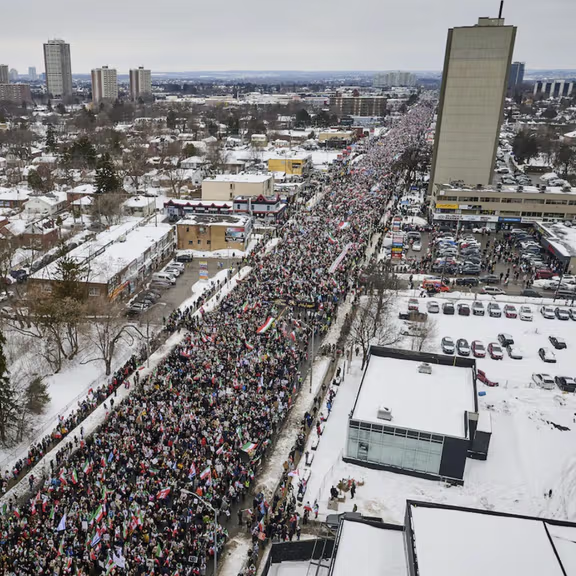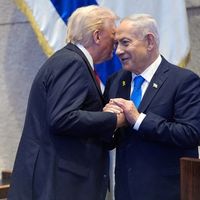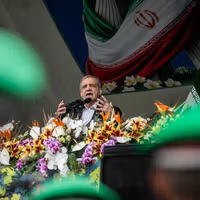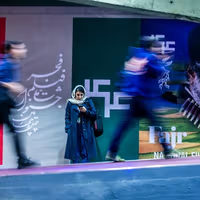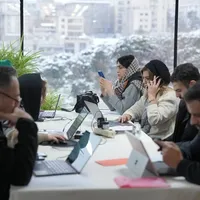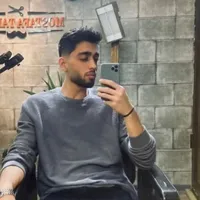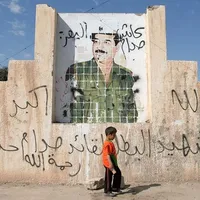We need national dialogue, or Iran’s problems will bury us all
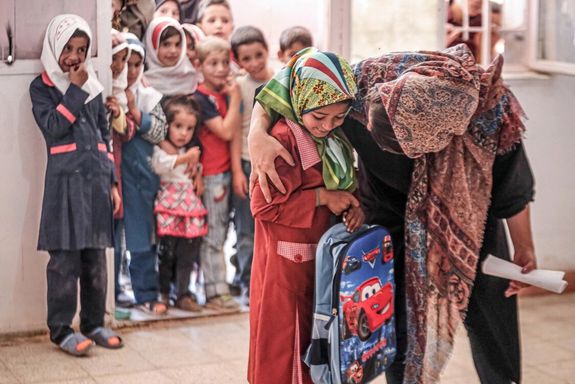
We Iranians need a national conversation — an ongoing, daily dialogue to see the dark and bright sides of the challenges our country faces and, hopefully, find practical solutions.
Host of nightly show The Program

We Iranians need a national conversation — an ongoing, daily dialogue to see the dark and bright sides of the challenges our country faces and, hopefully, find practical solutions.
Without such dialogue, our most urgent issues will be buried under layers of silence and denial. They may stay hidden for a while, but like melting snow, they will eventually overwhelm us.
Some crises are even more dangerous, neglected for so long that they become frozen in place for generations.
Breaking silence
Many important conversations could start with simple questions that come to mind in traffic, at a red light, or around the family table: What happened? Why did it pan out this way? Will there be war? Will things get better? When?
But most of these questions never leave our heads.
On social media, it’s no better. Instead of real dialogue, we see arguments, insults and unanswered monologues.
A society that cannot speak to itself will never know where its pain lies. And without knowing the pain, there will be no cure.
Case in point: food
Take the crisis of child malnutrition.
According to Shargh newspaper, only 2% of Iranian children consume dairy products daily, while over 50% have none at all. In families with temporary jobs, more than 93% either never eat meat or do so less than once a week.
We are depriving an entire generation not only of nutrition, but of growth, learning, health and a secure future.
Who talked about this? Which platform shouted these figures? Which officials were held accountable? No one.
This is how crises slip in quietly through the back door and settle in the heart of our lives.
It’s on them—but us too
Real, effective dialogue is suppressed in Iran. It has no place even in the structure of power. Accountability has been replaced by threats, reform by denial and conversation by the monologue of ideology.
Yet this pattern is not unique to the government; parts of the opposition suffer the same malaise: seeking followers instead of collaboration and building heroes instead of listening to diverse voices.
But there are too many Iranian voices have gone unheard.
We have disagreements, we have shared pain and we lack a genuine conversation that acknowledges us, shares experiences and heals divides.
A society whose media, schools, parliament and even family dinner tables lack conversation risks collective isolation: a social crisis in which silence becomes the norm.
What should we talk about?
We can only speak of the future when we first hear the voice of the present, when we speak our pains openly, without shame or fear.
Not to complain, but to build. To see that we are not alone. To learn how, even in darkness, a light can be lit.
That is the question I’ll be asking on my show. If there’s only one subject we must talk about, what should it be? What is the deepest wound Iranians face today?
We will host regular live National Dialogue specials with participation hopefully from Iranians around the world. You can watch the first episode here.

Iran is awash in voices claiming to speak for its people: state loyalists, opposition figures and self-styled experts of every stripe drowning out the non-extreme yet critical voices with their din.
Most people I see in Tehran feel suspended in uncertainty, struggling with daily water and electricity outages while fearing the return of United Nationas sanctions and another war. They want change, but can’t see it on the horizon.
Worst of all, they feel they can’t express their concerns and thoughts.
“These days, you have to declare your political stance before you can say anything. And what you say must fit the dominant binaries, even if it’s about the price of beef.”
Shahriar is 36. He was laid off from his HR job just after the Iran-Israel ceasefire. He now delivers food while looking for work.
“There’s no voice that represents us,” Shahriar says. “And by us, I mean those who hate the Islamic Republic but don’t want to see the country destroyed by war. The atmosphere of accusation, labeling and hate online is so intense that I stopped posting on X and Instagram two weeks ago.”
That hostility, he says, has spilled beyond the screen.
“I’ve seen this toxicity enter friendships and family gatherings. If you criticize the war, people assume you support the regime—even though that same regime has imprisoned anti-war activists. Even supporters of the regime can’t tolerate anti-war views.”
Pick a side
Since the widespread protests of 2022, many activists have been calling for unity between those who want to see fundamental change in Iran. But solidarity remains fragile and elusive. A coalition of six high-profile opposition figures offered a glimmer of hope. But the effort quickly collapsed, widening divides and deepening mistrust.
“There’s this illusion that only two camps exist. Either you follow a scripted, militant vision of regime change or you’re a regime collaborator,” says Shiva, a civil society activist in Tehran.
The polarization, she believes, has erased nuance and pushed those like her out of conversations.
“Say Israel committed crimes, and one group calls you a regime apologist. Say the same thing to the other side, and they’ll ask why you’re silent about Iran’s military achievements. You find yourself defending your integrity instead of your argument. Constantly. It’s exhausting—and sad.”
Repeat the line
A recent study by LifeWeb, an analytics group operating under restrictions in Iran, offers a partial window into online activity during and after the Iran-Israel war.
The report says the hashtag #جانم_فدای_ایران (“My life for Iran”)—promoted by former foreign minister Mohammad Javad Zarif—was used in over 514,000 posts generated by only 17,000 users. That’s an average of 30 posts per user, suggesting coordinated repetition rather than broad engagement.
Likewise, in the final three days of the war, the Trump-associated hashtag #MIGA (Make Iran Great Again) appeared more than one million times from just 30,000 users—again averaging 30 posts each. This peak came during a nationwide internet blackout in Iran, raising further questions about the campaign’s authenticity.
While not conclusive, such patterns underscore how coordinated efforts can dominate digital narratives, often overshadowing the quieter voices who oppose both war and authoritarianism.

Silence yourself
This “distortion” shapes perception, says Navid, a 28-year-old MBA student.
“These campaigns make it seem like most Iranians supported the Israeli strikes. But around me, most people saw war as a dangerous way to bring change. Sure, some defend it—but when the majority stays silent, the loud minority becomes the dominant voice.”
Navid believes this dynamic makes people fear expressing their views, feeling isolated in their beliefs. His friend Sina nods as he speaks before jumping in to vent his frustration at “losing” the only space he had to talk.
“Social media is the one platform most of us have to express our views. And it has been taken over by aggressive minorities and pressure groups.
“How can we reach a shared understanding, a shared purpose, when all we do is attack and cancel each other,” he asks. “The worst bit is we don’t even know if those shutting us up are real people or bots and cyber mercenaries.”
In 1980, months after Islamists took over what appeared to be everyone’s revolution, Iran’s renowned poet Ahmad Shamlou wrote one of his most recited lines to describe the repression: “They sniff your mouth, lest you’ve said ‘I love you.’”
It’s chilling to hear that line whispered again, not in defiance of power, but in fear of each other.

The Iranian government has allocated at least $67.6 million in foreign exchange subsidies for pilgrims attending the upcoming Arbaeen religious procession while the country faces its worst economic crisis since the founding of the Islamic Republic.
According to the Central Bank, each pilgrim traveling to Iraq for the annual ceremony may receive up to 200,000 Iraqi dinars at a subsidized rate, priced roughly $18 below Tehran’s open market exchange.
The Arbaeen ceremony marks the end of the 40-day mourning period following Ashura, the religious ritual commemorating the death of the third Shia Imam, Hussain ibn Ali.

With officials projecting that 3.7 million people will cross the border, the total state subsidy amounts to nearly 62,900 billion rials or $67.6 million.
Shia Muslims walk vast distances, even hundreds of kilometers, to reach the shrine and other nearby sites.
Although small groups of Iranians had made the pilgrimage in the years after Saddam Hussein’s fall in 2003, the numbers surged after 2010, when official data first recorded 40,000 pilgrims.
By 2019, participation reached three million, before declining sharply during the pandemic. The growth has been fueled by active promotion by the government and large-scale government investment in roads, healthcare services, and logistical support for pilgrims.
In addition to currency subsidies, state-affiliated charities, municipalities, city councils, and various government bodies allocate dedicated budgets each year to organize the event and provide services along the route.
These include free meals, subsidized transport, and free Wi-Fi access along the main routes and within Karbala.
Roundtrip tickets from Tehran to Najaf—where many pilgrims begin the walk—range between 130 and 150 million rials (approximately $138 to $159), Adel Nourali of Iran’s Airlines Association said this week.
The large portion of each fare allocated to Iraqi airport fees has intensified concerns over concealed state subsidies.
1,550 tons of subsidised food including lamb, chicken, sugar, and rice will be distributed to religious camp organizers at massively reduced rates, Jebreil Baradari, head of Tehran’s Agricultural Jihad Organization said this week.
The offer comes as the cost of meat in Iran has soared and per capita meat consumption has fallen as over one third of the country is now living below the poverty line.

A group of leading Iranian tech entrepreneurs has warned President Masoud Pezeshkian that mounting state interference has left emigration the only remaining option for technology firms trying to survive.
“Some security agencies, through official letters, have prohibited government institutions from cooperating with the country’s major startups. This trend has continued with the sealing of central offices of certain companies, revocation of licenses, arrest of investors and executives, forced exit of shareholders and investors, and prevention of platforms from entering the stock market,” the letter said.
In the letter signed by the founders of Iran's largest e-commerce platform Digikala, travel agency Alibaba, streaming service Filimo, Android App Store Cafe Bazaar, and classifieds platform Divar, the group accused security bodies of executing a systematic effort to subdue and dominate the startup ecosystem and warned of the sector's imminent collapse.
They wrote that increasing political pressure has extinguished motivation among young professionals and forced a shift toward mass organizational migration.
“Now, today, we witness an unprecedented move: the same forces have issued an order to halt the operations and remove the founder of one of the major local platforms. The result of this process is the shutdown of one of the most exceptional innovation ecosystems in Iran’s history…. We are losing our human capital, financial investments, and the motivation of the new generation.”
The letter was referring to the removal of Divar’s founder, which the authors called an “extraordinary sign of security institutions asserting full control over the private sector.” They said the process had moved from interference to outright takeover.
IRGC officials informed regulators that the company’s IPO could proceed only if founder and CEO Hessam Mir Armandehi was removed—an instruction Armandehi later published in full.
The Washington Post on Wednesday reported that the Islamic Revolutionary Guards’ Corp (IRGC) intelligence wing intervened this spring to block Divar’s stock market listing.
The move came after the company’s refusal to hand over user data or sell shares to firms tied to Supreme Leader Ali Khamenei’s economic network, according to the report.
“This leads to lower investment, of course, and it leads to capital flight not only from investors in Divar but also in many other digital companies,” Mahdi Ghodsi, an economist at the Vienna Institute for International Economic Studies, told The Washington Post.
“If they continue these kinds of policies, they are helping the collapse of the Islamic Republic.”
In their letter, the tech founders warned that countries such as the UAE and Saudi Arabia are actively recruiting Iran’s skilled workers and positioning themselves as regional centers of innovation. Iran, they wrote, is forfeiting its greatest asset: its people.
They urged Pezeshkian to end the securitization of the sector and restore trust before the remaining foundations of Iran’s innovation economy fall away.

A young woman in a loosely draped hijab, strands of hair framing her face, flashes a peace sign while holding a photo of a slain Revolutionary Guard commander.
The improbable image fills the front page of hardline daily Vatan-e Emrooz, presented as part of the Islamic Republic’s “new generation of resistance.”
But analysts told Iran International it is less a reflection of reality than a carefully crafted narrative aimed at shoring up support for Tehran after its 12-day war with Israel — the worst direct military confrontation in their fraught history.
The war left hundreds of civilians dead, damaged infrastructure and deepened economic strain. In its aftermath, the Iranian establishment has worked to project resilience and unity, even among citizens who defy its strict social codes.
The Vatan-e Emrooz cover accompanied a story built around a Foreign Policy article by an Iranian-American academic which argued that some young Iranians are rallying behind Tehran’s anti-West, anti-Israel stance in the war’s aftermath.
Following the bruising conflict, Tehran embraced nationalist symbols it long suppressed, with mythological tales and ancient monarchs adorning public billboards.
For author Arash Azizi, whose book What Iranians Want: Woman, Life, Freedom examines political and social change, this type of imagery is part of a familiar playbook.
Referring to a domestic militia and Iran's Islamic Revolutionary Guard Corps, he described Vatan-e Emrooz as “a hardliner outlet, traditionally close to the Basij, which is a section of the IRGC … known for a very sensational sort of tabloid-style headlines.”
The paper, he added, has long featured stylish young who appear supportive of the establishment to imply that “even sections of the population that flout the hijab rules … nevertheless supports its foreign and military policies.”
Holly Dagres, a senior fellow at the Washington Institute for Near East Policy, studies Iran’s younger generations and regularly tracks Gen Z and Gen Alpha trends.
She said that while this visual contrast between appearance and ideology is not new—women without hijab have backed hardliners, and chador-wearing women have voted reformist—the cover is nonetheless a strategic push.
“It’s for the regime to make a point, especially at a time when it has historically high anti‑regime sentiment, that ... we have the support of these individuals too that don’t usually fit the stereotypical box of what a good Islamic citizen in our view is," Dagres told Iran International.
No gesture by chance
Visual communication expert Siavash Rokni, who holds a PhD in communication and researcher in popular music at McGill University, sees deliberate messaging in the picture’s design: the woman’s ear “out of her scarf,” the bright blue clothes “evoking kind of happiness and rejuvenation and the future,” and her phone with a peace sign “as kind of the representation of Gen Z.”
Rokni also points to the way she holds her phone — not in a natural texting or scrolling posture, but almost like a prop, gripped sideways with fingers loosely wrapped around it. The position, he suggests, looks staged.
It’s an example of what Rokni calls the Islamic Republic’s turn to “soft war”—countering Western “soft power” via curated cultural imagery. The same effect is visible, he added, in rap lyrics and music videos where some artists are either funded or influenced by the IRGC to echo establishment talking points, while others openly align themselves with them.

Gen Z beyond reach?
Activist Tara Dachek, part of Iran’s Gen Z and now living abroad, sees the image as a sign of weakness, not strength. “The Islamic Republic is drowning — these are its last desperate gasps,” she told Iran International. Such visuals, she says, reflect “fear, repetition and desperation” rather than genuine engagement.
Having left Iran six years ago, Dachek believes the cover only affirms that her “generation is on the right path — the regime has already lost us.”
"Even back then, I didn’t trust state media. I never followed their news because I knew it wasn’t truth — it was survival wrapped in a lie," said Dachek.
Among younger Iranians, the dissatisfaction runs deep.
Surveys show that nearly 75% of Iranians—including many Gen Z individuals—opposed mandatory hijab, with 84% favoring a secular state over the Islamic Republic, according to GAMAAN — a Netherlands-based research organization that conducts large-scale online surveys of Iranians.
Gen Z, who wasn't yet born at the time of the 1979 revolution, frequently expresses opposition to both political Islam and compulsory dress codes while embracing global cultural values.
Despite Tehran’s efforts to project unity, young Iranians may not be as passive or easily swayed as officialdom believes. Shaped by years of protest and repression, they remain among the most vocal critics of the Islamic Republic.
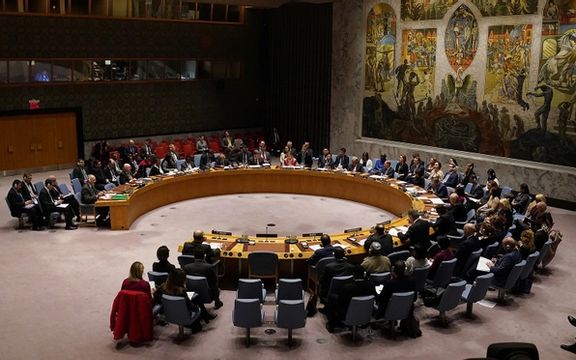
A resilient anti-sanctions consensus dominated major Western policy circles and media narratives for a decade, but this stance risks undermining international law by normalizing Iran’s sustained nuclear defiance.
Prominent foreign policy journals, think tanks and legacy media outlets have consistently portrayed the UN sanctions "snapback" mechanism under UNSCR 2231 not as a legal obligation but as a geopolitical hazard.
Reimposing sanctions, they argue, would empower Iranian hardliners, obstruct humanitarian aid and alienate allies. Though presented as cautious and pragmatic, such positions align with Tehran’s longstanding arguments.
This consensus persists despite mounting evidence of Iran’s sustained non-compliance.
In March 2025, US President Donald Trump issued a 60-day ultimatum demanding Iran reduce enrichment and allow expanded IAEA access. Tehran swiftly rejected the demand.
On the 61st day, Israel struck Iranian nuclear sites, capped off by deeper US strikes on underground enrichment facilities on June 22. A ceasefire took effect on June 24, but the crisis persisted.

Recent escalation, strategic defiance
The IAEA’s resolution of June 12, 2025, confirmed that undeclared nuclear material remained unaccounted for and that the Agency could no longer verify the peaceful nature of Iran’s nuclear program.
On July 4–5, 2025, Iran expelled all inspectors and terminated monitoring protocols, eliminating the last vestige of international oversight.
These actions—alongside continued enrichment to 60%—represent clear violations of Articles II and III of the Nuclear Non-Proliferation Treaty (NPT) which bar non-nuclear-weapon states from acquiring certain nuclear technologies and mandate IAEA safeguards.
Although Article IV affirms a right to peaceful nuclear energy, that right is strictly conditional upon compliance with Articles II and III. In the words of former IAEA deputy chief Pierre Goldschmidt, "enrichment is not an unconditional entitlement."
These violations explicitly trigger the condition of "significant non-performance" under UNSCR 2231, legally mandating sanctions snapback."

Binding legal obligations
The snapback mechanism embedded in UNSCR 2231 reflects the principle that enforcement must not be held hostage to political convenience.
Iran’s material breaches—expelling inspectors, concealing enriched uranium, continuing high-level enrichment, and refusing to account for undeclared material—trigger conditions for significant non-performance.
UNSCR 2231 operates under Chapter VII of the UN Charter. Articles 39–42 empower the Security Council to determine threats and impose binding measures.
Article 25 obligates all Member States to “accept and carry out” such decisions, while Article 103 ensures Charter obligations supersede conflicting treaties—including the JCPOA.
No expiry date
The International Court of Justice, in its 1971 Namibia Advisory Opinion, affirmed that resolutions under Chapter VII bind all Member States. Once reinstated, sanctions remain legally binding until explicitly lifted by another resolution of equal authority.
International law broadly supports this, as noted by scholars Sue Eckert and Haroun Rahimi. Sanctions do not expire through diplomacy or political shifts. They remain binding.
The Istanbul summit on July 25, 2025, convened Iran and the E3 (UK, France, Germany) amid intense diplomatic pressure but produced no breakthrough.
Iran had already expelled inspectors and resumed 60% enrichment. Uranium removed before the June strikes remains unaccounted for.
The July 22 Qaem-100 satellite launch, despite civilian framing, clearly signals ongoing dual-use missile capabilities. On July 21, Araghchi publicly asserted Iran would proceed regardless of international pressure. The pattern is unmistakable: deliberate defiance.
Abdication not caution
Upholding UNSCR 2231 through snapback is not an expedient—it is a legal obligation. When enforcement mechanisms are neglected, the architecture of deterrence collapses. Delay becomes paralysis, and paralysis risks open conflict.
As Winston Churchill warned amid interwar failures of collective security: "The malice of the wicked was reinforced by the weakness of the virtuous."
Deferring action under UNSCR 2231 amounts not to caution but to abdication.
The E3 now stands at a historical precipice. It can uphold the very enforcement mechanism it established in 2015 or to let it lapse—and with it, allow binding Security Council resolutions to fade into irrelevance.
Triggering snapback means defending the Charter and forestalling further conflict in an already volatile region.
